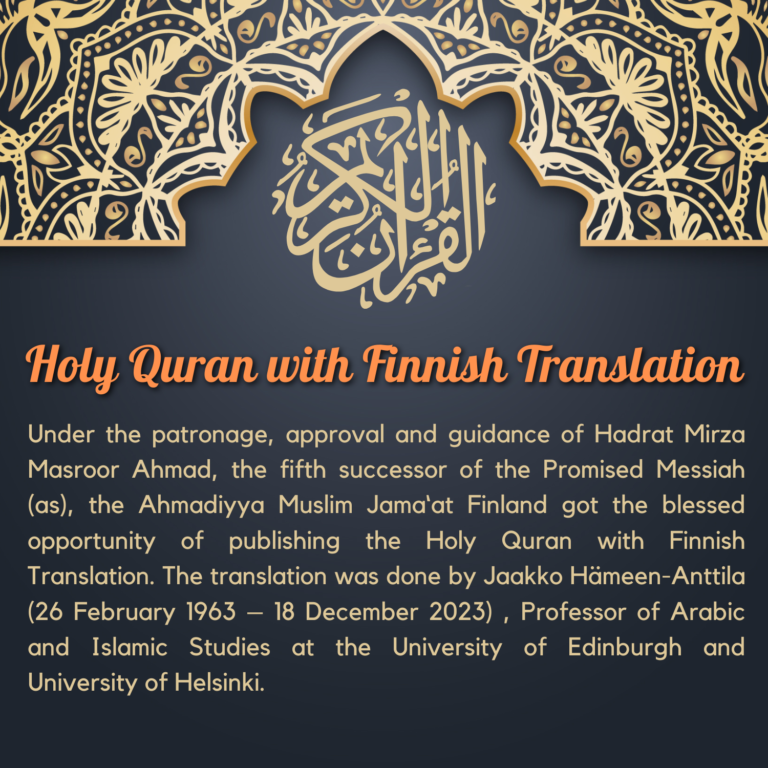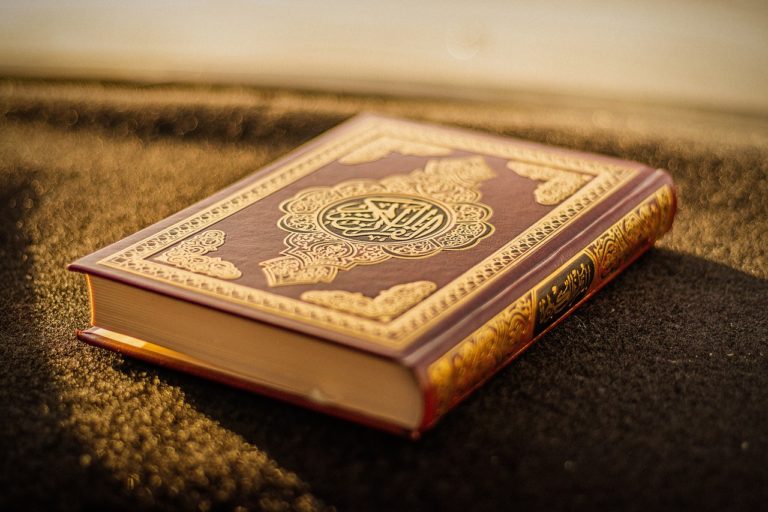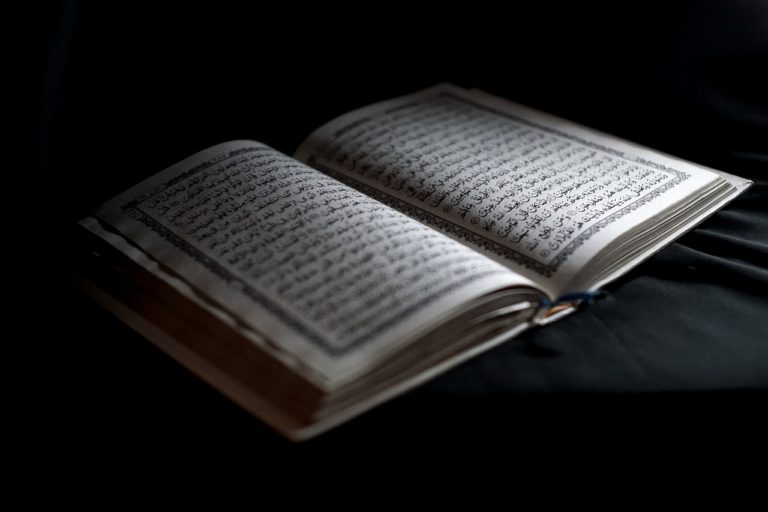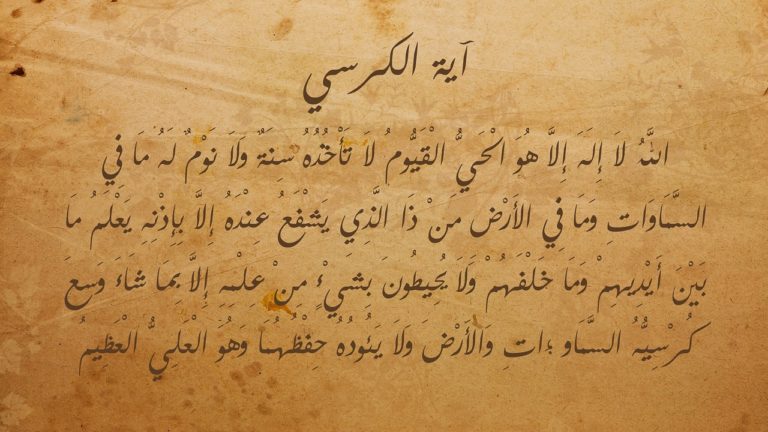Holy Quran
The Holy Quran is a compilation of the verbal revelations given to the Holy Prophet Muhammad(sa) over a period of twenty three years. The Holy Quran is the Holy Book or the Scriptures of the Muslims. It lays down for them the law and commandments, codes for their social and moral behaviour, and contains a comprehensive religious philosophy. The language of the Quran is Arabic.
Besides its proper name, the Quran is also known by the following names: al Kitab (The Book); al Furqan (The Discrimination); al Dhikr (The Exposition); al Bayan (The Explanation); al Burhan (The Argument); al Haqq (The Truth); al Tanzil (The Revelation); al Hikmat (The Wisdom); al Huda (The Guide); al Hukm (The Judgment); al Mau’izah (The Admonition); al Rahmat (The Mercy); al-Noor (The Light); al-Rooh (The Word).
Surahs And Verses
The Holy Quran is divided into 114 Surahs or Chapters and each Chapter consists of individual Ayaat or verses. There are in total 6,348 verses in the Holy Quran. The Surahs are of varying lengths, some consisting of a few lines while others run for many pages. Surah al Baqarah (Ch.2) is the longest Chapter comprising 287 verses while Surah al Kauthar (Ch. 108) is the shortest with only four verses including the tasmia.
The text of the Holy Quran has remained unchanged over the past 1400 years. And this is not strange since God says in the Holy Quran that He Himself will guard this book:
“Surely it is We Who have revealed the Exposition, and surely it is We Who are its guardians” (15:10)
Was the Holy Quran perfectly preserved?
Among the ancient books available today, scholars agree that the New Testament is the most well-attested book. What that means is that there are more manuscripts for the New Testament than any other book from antiquity. There are thousands of manuscripts – partial or fully – both in the original Greek language in which these were written, and in the form of translations in Latin, Ethiopic, Slavic and Armenian. As a leading New Testament scholar Dr. Bruce Metzger proudly puts it, the book which is the runner-up next to the New Testament in terms of manuscript testimony is Homer’s Iliad with fewer than 650 Greek manuscripts[1]. However, when it comes to preservation of ancient texts, scholars have pointed out differences between these numerous manuscripts available which makes it difficult to know without a shadow of doubt what the original words were.
Comparatively, the Holy Quran is the only ancient book which is the best preserved throughout the last 1400 years and this can be ascertained from the evidence and by taking a closer look at how the Quran was originally revealed and preserved since the time of the Prophet Muhammad(sa). Critics of Islam have made many objections to the claim by Muslims that the Quran is perfectly preserved. This debate has become even more furious nowadays because the preservation of other holy texts like the Bible have also been brought under close scrutiny for the last two to three hundred years. It is alleged, for instance, that there are different “versions” of the Quran and doubts are expressed regarding the motives of Hazrat Uthmān(ra) when he burned certain manuscripts of the Quran in favour of the official one. In light of this, it is important to first understand what methods were used for the preservation of the Quran.




